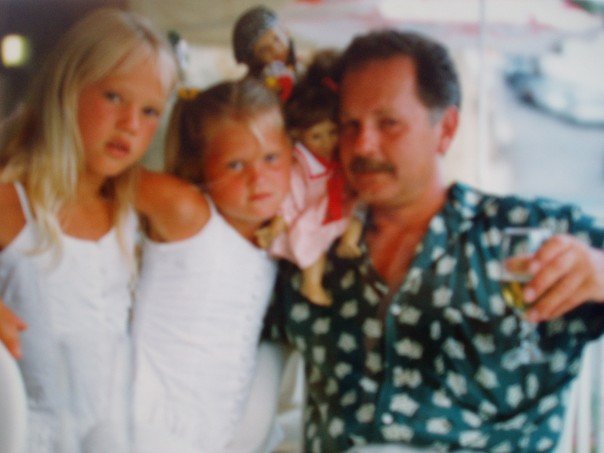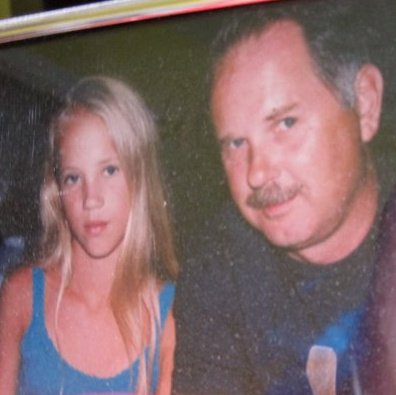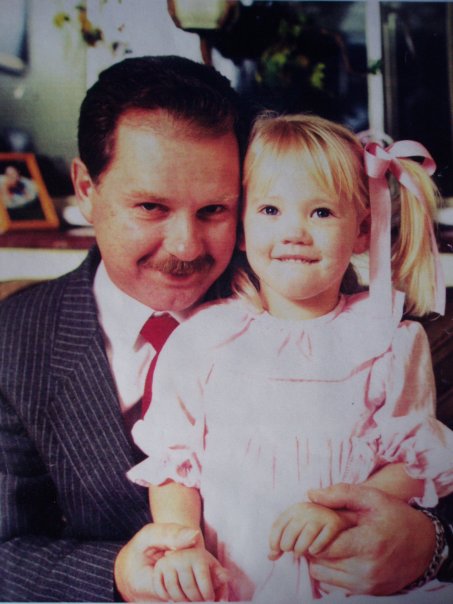
My father died over a decade ago when I was 18. After time has passed, I’ve learned a lot about grief. And not just about how I deal with it, but how friends and family act around someone who is grieving. I think possibly the hardest part for the people around you is right after it happens. There’s no how to help someone deal with grief guide (well, there probably is, but most people will never read it). What do you say? How do you act around someone who is newly bereaved?
I guess one of the biggest problems is you can never tell how someone is going to react under these circumstances. Everyone copes in their own unique way. Whether that means sobbing until their eyes can no longer produce tears, or pushing all that emotion back within and carrying on as if nothing has happened.
When people are grieving, they probably aren’t themselves. They could lash out, be moody, start blaming you for things or just completely go into their shell and shut the world out. However, no matter how your loved one reacts, there’s definitely one thing I’d say they’re likely to be feeling. Shock. Especially right after. They may be so shocked that they can’t seem to comprehend what’s gone on. A common feeling is that it seems as though that person is not really gone. Because how could something this awful actually happen?
I’m at a point in my grief where I feel strong enough to try and help others. That doesn’t mean I don’t feel my heart break all over again when I think of my dad, because I do. But I’m just a bit stronger now, and I’ve come appreciate the moments when he comes into my head, rather than let them always upset me.
As I write this article I’m forcing myself to think back to the days following his death. It’s a struggle to recollect everything because it seemed like such a whirlwind. All I can remember is an overwhelming lack of control, and feeling distraught. I wondered why these events had to have taken place. I played the night before he died over and over in my head. But most of all, I yearned to say goodbye properly. Although I got to say goodbye before he went to the hospital, casually saying ‘bye dad, love you’ – I had NO idea that would be for the last time.
Anyways, I’m getting off topic here. I want to give some practical advice, but perhaps sharing a bit of my story has put things into perspective for you guys. Set the scene if you will. Now I can’t promise that the suggestions and recommendations based on my experiences are the right thing to do. Or that they will help everyone. I’m not a psychologist or an expert on grief. So have a read through and simply pick out bits that you may feel are helpful to your situation.
Here’s how you can help someone who has lost a friend or family member in the days following the event.
What not to say
I think personally, the worst stuff people say to you at this point is the standard stuff. The things that everyone says and assumes it’s helpful. Like ‘it’s all going to be ok’ (F**k you, no it’s not), ‘I know how you feel’ (no, you definitely don’t) and the worst one, ‘it will get easier’. You see the problem with the statements is that you can’t promise they will come true.
When someone has just experienced the death of a friend or family member, they can’t get their head around everything being ok, ever. In their eyes, their world has literally stopped. They can’t see further into the future at this point, so why would they think it will get better? You probably will think I’m being a tad overdramatic here as these aren’t mean things to say. But you’ll only really understand once you’re grieving yourself.
And definitely, don’t try and compare their situation to anyone else. Like the death of your pet hampster. Or worse, suggest that there are more tragic things going on in the world, and that their loss isn’t that bad. I don’t think many people would say this but you’d be surprised. What I mean is saying something like ‘Oh I know someone called John Smith, he lost his father and brother in the same week’. And try to suggest that this is worse. Because right after someone you love dies, you literally can’t imagine anything worse, and you don’t want to.
Instead of relying on the go to statements, all you really need to say is the truth. Say you’ll be there for them every step of the way. Say you can’t understand their pain but you know it must be awful. Don’t try and make things sound better, or that what is happening shouldn’t bring their lift to a halt, because it does. It totally derails your life. It completely alters your perception of life.
What you can do instead of thinking about what to say is listen, and respond. Don’t think ‘I should say this or that’, just follow their conversation. All people really need at this time is someone to listen should they want to talk. And if they don’t want to talk about their loss yet, then don’t force them to. Chat to them about other things if that’s what they want.
What to buy someone who is grieving
Of course, most people will buy flowers. But you know what makes your home feel more like a memorial than a house? Tons and tons of flowers. It screams that something is wrong, and someone has died. Sure, flowers can be beautiful and brighten up your home, but you don’t need a whole house full of them. Also, I’d suggest buying them flowers say three or four months down the line, or on special anniversaries when most other people don’t bother. Adjusting to normal life again after you have had a bit of time off to grieve can be really, really tough. So send them a reminder that you’re still here for them.
And if you know that they’ve already got lots of flowers, try and think outside the box a bit more. What gift would be really helpful/useful/thoughtful at this time? For example, you could get them a sleep aid kit to help them drift off, because sleeping when you’re grieving is hard. Or you could get them a little pick me up gift box online, or make a little hamper of goodies yourself. Then you can be really thoughtful and put loads of stuff they love in that you know they will use.
Things that help them relax and switch off, even for a few moments are useful. Like some luxurious bath products or amazing smelling candles. I personally wouldn’t recommend getting them a treatment like a massage or beauty treatment at this time. Just because I don’t think I could have sat through anything in the days or even weeks after my dad’s death. You somehow feel guilty if you treat yourself at all, or if you have any joy because why should you when your loved one has gone.
A simple heartfelt card can really help too. A homemade one or one where someone has taken the time to add some caring and kind words. You can read these when you don’t want to talk to anyone, but you want a bit of support. Little ‘I’m thinking of you’ type gifts are great too.
If the person is really struggling to cope with general life, you can help them with this instead of buying a gift. Having someone go to the grocery shop to pick up some essential supplies when you can’t face it is more useful than flowers. Take them somewhere they need to be. Make sure they’ve got everything they need to function.
What you can offer
Some people may not want company at this time, so keep in mind you may need to give them some space initially. Just make sure they know you are still there with a text every few days. I would just text the person saying, ‘just so you know I’m here any time day or night and I’m thinking of you.’ It’s surprising how comforting just a simple text like that can be.
If they are open to seeing you and you can get them out out the house, then try and go for a walk somewhere or for coffee. Get them out of their home which probably feels like a very sad place while they are grieving. Sometimes just breathing fresh air and taking in the outside world can offer some welcomed respite from the pain.
I found that a lot of people initially offered their condolences, then they sort of thought their job was done. Even if your friend or family member appears to be improving, that doesn’t mean they are getting over their grief, or that they aren’t grieving privately. So don’t give up on them and simply get on with your life hoping they will be OK. They’re going to need you for a while. I’m not saying you have to go the extra mile to help them, just keep making the effort to see them and remind them that they can always talk to you.
It’s during these times you notice who you true friends really are. The ones that are still there for you later on down the line, not just during the aftermath.
If they are having a particularly tough time and finding it hard to cope with life, then it might be an idea to gently suggest that they go and see someone. Counselling can really help you to reflect on your grief and have an outlet, especially soon after a loss. Don’t force this on them, as they have to choose to go themselves.
My last bit of advice is to not put any timeline or pressure on their grief. And this works both ways. Don’t expect them to behave a certain way and cry all the time, as there’s no set way to grieve. A lot of people end up feeling guilty for not feeling more ‘sad’ and highlighting this can make them feel worse. Don’t expect them to get better quickly either.
People don’t just ‘get over’ their grief a year after someone passes, it’s a continual process. From my experience the pain doesn’t get any less severe in terms of the loss you feel, you simply learn how to channel and process it better. And in time, you feel the pain ever so slightly less often.
As I mentioned above, one of the best things you can do is simply help them with daily tasks. They may fail to feed themselves properly or carry out normal admin tasks. So offer your help. Sort through their post. Check their emails for them. Make them a few snacks or small meals for the next few days. These things are so helpful.
Remember to take care of yourself
You will probably be surprised just how utterly exhausting it is to emotionally support someone who is grieving. You absorb their despair and sad energy like a sponge – and it can leave you feeling pretty awful yourself.
But remember, you can’t be of use to them if you’re in a state yourself. It’s crucial that you take some time out to process everything and relax. How will you help them if you’re not even helping yourself? If you want to be strong for this person you care so much about, don’t take on too much. And if you’re finding the whole situation difficult, then talk to someone else about it and get things off your chest.
Getting used to the tears
If you’ve not been around tears and emotional pain much before, you may be a little overwhelmed by the raw emotions that pours of out of everyone. Yes, it can be a little awkward if someone bursts into tears and you don’t know what to do.
But I think it gets most awkward when the ‘helper’ person is too full on and tries to over comfort and keep the person talking. If they start crying, don’t try and stop them, they may need to cry out some of their pain. You can just sit there in silence while they let it out, and talk to them when they’ve had a breather.
Hold their hand, put your arm around them or if they need space, sit in a chair nearby or go and make them a cuppa. They may feel a bit embarrassed but just tell them it’s completely fine, that’s what friends are for. It’s not just about all the fun times you have together, it’s how you support each other when life is really awful.
Thanks for reading
I hope this post is useful to some people out there who are dealing with the daunting task of supporting someone who is going through what may be the worst time of their life. As I mentioned earlier, this is just from my personal experience. It’s what I would want if I was going through grief again. I can’t promise it would work for everyone. Got any more suggestions? Get in touch and let me know your thoughts.
The Content Wolf
p.s. Love you dad xxxxx


